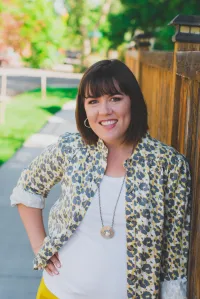Harmony in
Neurodiversity
THE BLOG
Welcome to Harmony in Neurodiversity, a blog dedicated to exploring the profound impact of music and positive parenting strategies on the lives of neurodivergent individuals. Join Samantha, a board-certified Neurologic Music Therapy fellow and a passionate Positive Discipline Parent Educator, as she shares her expertise in leveraging the power of music and effective parenting approaches to support and empower neurodiverse communities.
In her blog posts, Samantha delves into the intricate connections between music and the brain. She explores how specific musical elements and interventions can enhance cognitive functions, regulate emotions, improve communication, and promote social interaction among neurodivergent individuals. Through insightful articles and case studies, she demonstrates how rhythm, melody, and lyrics can serve as powerful tools for therapeutic interventions, fostering growth and self-expression.
Positive Discipline Parenting Strategies:
Drawing from her expertise as a Positive Discipline Parent Educator, Samantha sheds light on nurturing positive relationships between parents and neurodivergent children. Her blog offers practical advice, evidence-based strategies, and real-life anecdotes that empower parents and caregivers to cultivate respectful, encouraging, and effective parenting techniques. From setting clear boundaries to fostering a supportive environment, Samantha guides readers in navigating the challenges and joys of parenting neurodiverse children.
Exploring Intersectionality:
Samantha doesn't limit her discussions to singular approaches. Instead, she delves into the intersectionality of Neurologic Music Therapy and Positive Discipline Parenting, illustrating how these methodologies complement each other. Through her insightful content, she showcases how the harmonious integration of music-based interventions and positive parenting strategies can create holistic support systems for neurodivergent individuals, promoting their well-being and personal growth.
Community Engagement and Resources:
Additionally, Samantha fosters a vibrant online community where readers can engage, share experiences, and seek advice. She curates a wealth of resources, including recommended readings, workshops, and practical tools, empowering her audience to implement valuable insights into their lives effectively.

Be Specific: Key Insights from Temple Grandin
In 2005, I first learned of Dr. Temple Grandin—a powerful speaker, author, and advocate, who has become a prominent voice for neurodivergent individuals. Not only did she transform the cattle industry with more humane practices, but she also shares her wisdom and life experiences to help others in the autism community thrive.
Diagnosed with autism as a toddler, her mother was advised to place her in a mental health facility. Luckily, her mom didn’t listen.
Instead, she worked hard to support Temple’s growth and development, helping her achieve extraordinary things.
In 2016, I had the chance to hear her speak as a keynote at a conference and even meet her during a book signing—what an honor!
But last weekend, something even more incredible happened… Lauren and I got to interview Dr. Grandin on the Every Brain is Different Podcast! Life goal accomplished!
Here are some takeaways from our conversation:
1. Early Intervention is Key
If your child shows signs of speech delays or developmental challenges, don’t wait! Dr. Grandin emphasizes the importance of early intervention. Start working on basic skills like turn-taking, using utensils, and communication as soon as possible. The earlier, the better!
2. Don’t Punish Sensory Overload
Sensory issues are a big challenge for our kids, and punishing sensory overload won’t help. Instead, Dr. Grandin recommends helping children manage their sensitivities. For example, if loud noises trigger your child, let them control the volume, or offer noise-canceling headphones. Just don’t overuse them—too much dependence can make things worse.
3. Celebrate Different Thinking Styles
Whether your child is a visual, mathematical, or verbal thinker, embrace their unique way of processing the world. Dr. Grandin encourages parents to nurture these strengths. Simple activities like building with Legos or using tools can develop problem-solving skills. Help your child dive into their interests and find learning opportunities along the way.
4. Teach Work Skills Early
As kids grow, it’s vital to teach them real-world skills. Dr. Grandin stresses giving teens responsibility—like ordering their own food at a restaurant or helping with household tasks. Little steps toward independence make a big difference as they transition into adulthood.
5. Be Specific
Kids, especially those who are neurodivergent, thrive on clear, specific instructions. Vague directions lead to frustration. Instead of just saying "no," explain why the correction is needed. It makes a world of difference when kids understand the reasons behind the rules.
I am so incredibly grateful for the time Dr. Grandin spent with us. One of my favorite moments was when she shared a story about a prank she pulled in high school—it was hilarious and such a humanizing moment. Her wisdom, humor, and warmth made this conversation unforgettable.
Listen to the full conversation on episode 64 of the Every Brain is Different Podcast.


